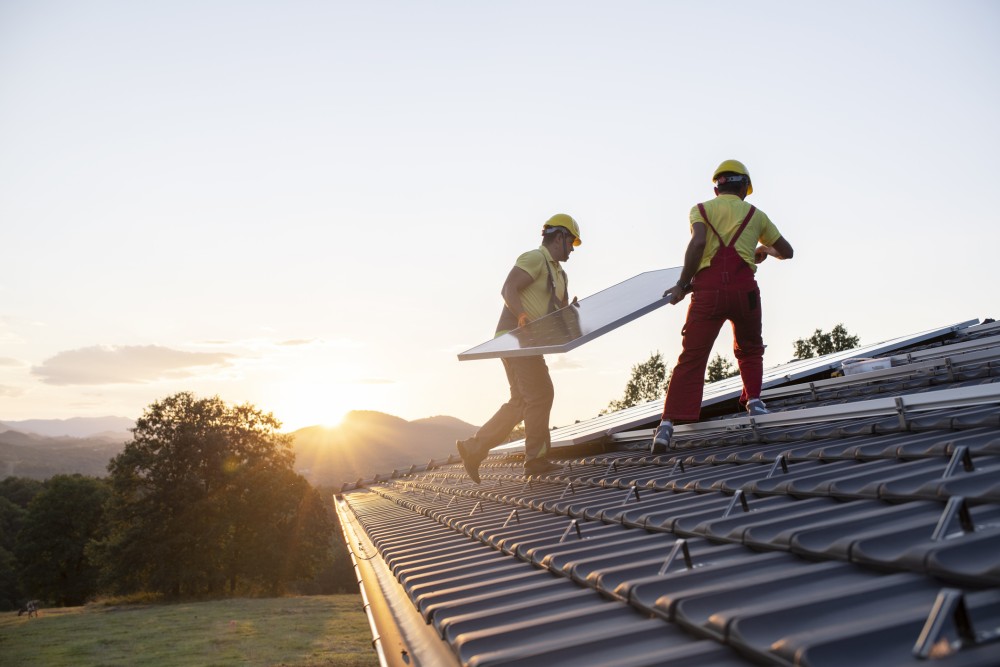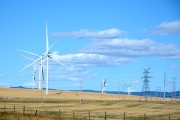It might be hard to see at first, but it’s there: everyday Canadians, including here in Alberta, are yearning for a better conversation about the future of our economy in a low-carbon world.
Most people know we have to deal with climate change. In the back of their minds, they are aware the world is aiming to cut down its use of fossil fuels. This is perhaps why, when we polled Albertans last year, seventy per cent said the province’s economy is too dependent on oil and gas. When asked to consider how the energy sector is likely to change, more than eighty per cent said the provincial government should be taking an active role in planning for future job opportunities for energy workers.
That tells me that, despite the continued championing of our oil and gas sector, most Albertans know instinctively that the energy transition is already underway, and that a lack of planning isn’t going to stop it now.
What many may not yet know is this: governments around the world are discovering that switching to locally produced clean energy has other benefits. These projects create jobs and bolster countries’ energy security in an unpredictable world — and lower the ultimate cost to consumers. This is what we at the Pembina Institute like to call the new energy economy: simple market forces and technological advances driving a shift to low-carbon models of economic growth.
The new energy economy was starting to take off in Alberta in the last few years through our booming renewables industry. Multinational companies were flocking here to invest in renewable electricity, and use that clean, affordable power to run their businesses. Not anymore — since last year, when the provincial government’s unprecedented moratorium around renewables development and introduction of several novel and still draft rules started driving those investors away, to other parts of Canada and the US.
Meanwhile, something akin to the industrial revolution is happening elsewhere in the world and we seem to be sitting it out. That’s why I am looking forward to hosting the deputy executive director of the International Energy Agency (IEA) — the world’s foremost research authority on energy production and use — for an event in Calgary this month with key decision-makers from our energy industries, clean tech, government and research organizations. The IEA will be fresh from publishing its annual World Energy Outlook, which last year found, for example, that more than US$1 billion per day was being spent globally on solar power development. We want to create a space for a tough but fair conversation, and will be asking questions like: what needs to change for us to prosper in this new energy economy? And: how can we ensure the benefits are spread evenly across Canada?
The IEA projects 30 million jobs can be created worldwide in clean energy, efficiency and low-emissions technologies by 2030. Why shouldn’t Canada have a piece of that? Pembina Institute modelling forecasts Canada can create close to two million direct and indirect clean economy jobs by 2050, in areas such as energy efficiency upgrades, building enhancements, and electric vehicle manufacturing. But they will only be created if we’re willing to invest in the skills and industries of the future.
Upgrading our buildings will reduce most Canadians’ energy bills and make our homes more comfortable to live in, and more resilient to extreme weather. Replacing diesel trucks and buses (including school buses) with electric vehicles will dramatically reduce pollution and the associated costs to our healthcare system.
Looking across Canada today, you’d be forgiven for thinking that we can’t afford to act on climate. In recent months, leaders of different political stripes have suggested that policies designed to encourage the uptake of cleaner technologies are an expensive luxury.
I want to tell you that, really, it’s the other way around. The world is speeding towards a cleaner, healthier energy future; in many places outside Canada, that future has already arrived. Turning our backs on this will not make Canadians’ lives better or more affordable, now or in the long run — indeed it could have the opposite effect. That’s why Canada must take action to prosper in the new energy economy.







